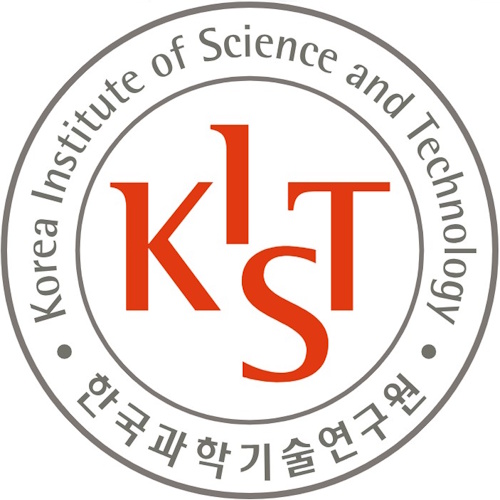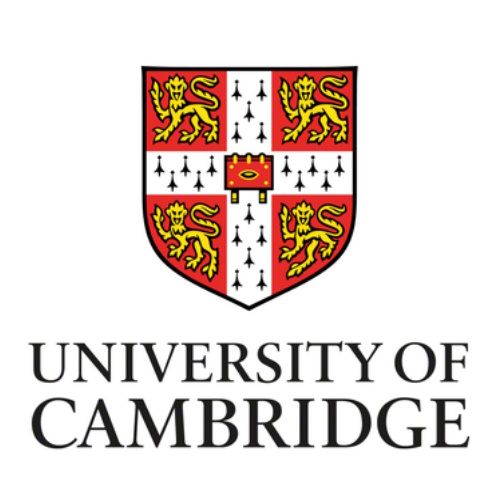New cancer therapies in 2022 achieving unprecedented remissions - reviewing a year of hope
As we start a new year with hope and optimism, it is important to look back at the year gone by and acknowledge all that we have achieved. The world slowly started moving out of the Covid pandemic to some sense of normalcy. In addition, the last year has been outstanding in our fight against cancer. We have made some extraordinary progress with some new treatments already showing results and some approaches in their nascent phases showing incredible potential. Here, we look at some of these groundbreaking new therapies and investigations.
Gene editing: Innovative treatment successfully eliminates incurable cancer in a young girl
Gene editing is a revolutionary technology that has the potential to change the way we treat diseases. One of the most promising applications of gene editing is in the treatment of cancer, and in particular, leukaemia. Leukaemia is a type of cancer that affects the blood and bone marrow, typically in over 55s and children.
Recently, a young girl named Alyssa became the first person to be successfully treated using gene editing technology for her acute T-cell lymphoblastic leukaemia (ALL). T cells are present naturally in blood to provide protection from infections. However, in leukaemia they become abnormal and start attacking the body’s own cells. Chemotherapy and bone marrow transplant failed to cure her.
Doctors and scientists at Great Ormond Street hospital used base editing to engineer her therapy. Genes are made of four bases - A, T, G and C. Base editing changes one or more of the bases in a gene sequence, which changes the instructions embedded in the genetic code.
The doctors first took donor T-cells. They disabled the targeting mechanism of these cells to prevent them from attacking Alyssa’s body. Then, a chemical marker, CD7, which is present on all T cells was removed from the donor cells. These donor cells were modified to become invisible to chemotherapy medication and instructed to destroy T cells with CD7 markings, thus destroying the cancerous T cells of Alyssa.
Dr David Liu, one of the inventors of base editing at Broad Institute, expressed surprise that this therapy moved from discovery to implementation in just six years and hopes this is just the beginning.
Nanoknife: Using electricity to eliminate prostate cancer
Prostate cancer is one of the most common cancers in males, affecting 1 in every 8 men in their lifetime. Treatment involves surgical intervention along with other therapies. But, unlike other common cancers with an active role of surgery, such as breast cancers, surgery in prostate cancer used to be quite primitive. In breast and other localised cancers, surgeons remove the affected part leaving viable tissue to various degrees. However, in middle to late-stage prostate cancer, the entire prostate is removed, frozen or irradiated. In early-stage disease, the approach used to be regular monitoring without immediate therapy. Hence, patients had to choose between aggressive surgeries and a “wait and watch” strategy.
A third more refined option is now available with the Nanoknife technique. Surgeons at University College London Hospital (UCLH) used it to treat prostate cancer patients. Nanoknife involves inserting four small needles into the tumour using ultrasound and MRI guidance. The probes target only the cancer cells by passing electricity. The therapy spares nearby healthy prostate tissue. The method also prevents injury to nerves in the prostate related to erection and bladder control. Both surgery duration and recovery time is also faster as it is a minimally invasive procedure.
Alistair Grey, the consultant urologist who led the first operations, said: '’What is very exciting about this treatment is its precision in targeting and attacking the cancerous cells without damaging healthy tissue, and maintaining the prostate's important functions.”
Immunotherapy : Man given a year to live declared cancer free
Robert Glynn, 51, from Worsley was given a year to live after an aggressive form of cancer was detected in his biliary tract. The cancer had spread to his liver and adrenal glands. It was a stage 4 cancer, and the tumours were so big that surgery was no longer a viable option. Glynn was identified to be a suitable candidate for participation in a clinical trial for a new immunotherapy drug at the Christie Hospital, Manchester.
Immunotherapy is a technique where a person’s own immune system is used to fight cancer. This is done by enhancing the ability of the patient’s immune cells to find and target cancer or by introducing external components made in labs into the patient to help in destroying cancer cells. Glynn was deemed to be suitable for this trial because analysis of his tumour revealed that his cancer cells had a high number of genetic mutations. This high mutation burden made him more receptive to this therapy.
He was given the new drug along with standard chemotherapy. Imaging revealed that both his liver and adrenal gland tumours had shrunk, making him viable for surgical removal of the cancer tissue. During surgery, only dead tissues were found. The therapy had destroyed all cancer cells.
Prof Juan Valle, a consultant oncologist at the Christie and a world-leading expert in biliary tract cancer said this success highlights the “importance of personalised medicine”.
Virus destroys cancer cells: Promising trials
A novel strategy which uses a common virus to attack and destroy cancer cells has shown significant promise in early clinical trials on humans. Herpes simplex, a common virus responsible for cold sores was used for this trial. The virus was used in a weakened form and modified to target cancer cells.
The phase one safety trial was conducted by the Institute of Cancer Research and the Royal Marsden NHS Foundation Trust. The modified virus is administered directly into the tumour site via injection over a course of a few weeks.
The virus injection, known as RP2, works by two pathways. Firstly, it infiltrates the cancer cells causing them to burst. Secondly, it activates the immune system of the patient. The therapy was used alone and also in combination with other cancer therapy. The virus was used against a variety of cancers including cancers of salivary glands, oesophagus and eyes. The trials showed encouraging results across all types.
Lead researcher Prof Kevin Harrington said, ”it is rare to see such good response rates in early stage clinical trials, as their primary aim is to test treatment safety, and they involve patients with very advanced cancers for whom current treatments have stopped working.”
KRAS mutation targeting gene therapy hailed as ‘wonder drug’
A new drug introduced in a trial for controlling cancer was hailed by a patient after showing remarkable response. Terri Hurdman, 49, was suffering from stage 4 colorectal cancer, a particularly aggressive cancer which had spread to her lungs also. This had severely debilitated her. She underwent multiple cycles of chemotherapy with no improvement and was looking at a grim eventuality.
However, a unique mutation was observed in the KRAS gene of her cancer. KRAS is a gene that makes proteins involved in cell signal pathways controlling cell growth, maturation and death. Her mutation made her eligible for a new trial therapy.
After three months of treatment using this new drug, the tumour size had reduced by half. This finding was remarkable as KRAS mutated cancer have been historically difficult to manage. Hurdman has shown significant symptomatic improvement as well in her daily life following therapy. More studies are required, but the findings show potential for future use.
Blood test to detect early cancer in patients with vague symptoms
A new test has been developed which promises to detect cancer in patients with non-specific symptoms like weight loss or fatigue. A major problem when dealing with cancers is late detection. Cancer grows in the body initially without showing any symptoms. As the cancer expands, vague symptoms like tiredness and loss of weight are exhibited. However, these are expressed in various degrees and are not specific to cancer only. All this while the disease keeps spreading until something more specific is detected and investigated further. At this point, the disease is quite advanced and difficult to manage.
The new test utilises a technology called nuclear magnetic resonance (NMR) spectroscopy. It profiles the ‘metabolic fingerprints’ of chemicals known as metabolites in blood. These ‘fingerprints’ are different in healthy individuals, localised cancers and metastatic (spreading) cancers. Hence, these tests if approved, can be used to detect and differentiate between localised and spreading cancers at an early stage.
Cancer vaccine completes landmark trial
A new experimental vaccine, designed to augment the immune system and target cancer cells has cleared a randomised control trial. The vaccine, made by Moderna and MSD, uses the same messenger RNA technique that has been used in the Covid vaccine.
The vaccine is designed to match an individual’s cancer in a personalised way, and although expensive now, has shown positive effects. A 44% reduction in risk of dying, or the cancer advancing, was observed. The vaccine needs to undergo further trials, but could herald the beginning of a new era in cancer management.
Breakthrough personalised medicine for cancer
A recent small study involving patients with incurable cancers validated using personalised medication to instruct their immune system into hunting cancer cells more effectively. The method, considered as a “leap forward”, involved genetically altering patient T cells to identify and destroy cancer cells more efficiently. CRISPR technology was used to design the therapy according to the uniqueness of individual patient tumours.
Epigenetics: The “Dark Matter” of cancers
Scientists have identified new ways in which epigenetics can influence the occurrence and progression of cancer in the body. Epigenetics is the study of the way our environment, behaviours and age affect the expression of our genes.
Epigenetics does not alter our genetic code unlike mutation. However, it impacts the access to genetic information which has prime role in cancer. This new discovery could change the way we approach cancer detection and treatment in the future.
“Nano machines” designed to destroy cancer cells
A research team from Korea Institute of Science and Technology in collaboration with Ulsan National Institute of Science and Technology has developed a nanomachine to directly attack individual cancer cells. They synthesised nanoparticles of gold and combined them with organic mobile molecules to design these microscopic machines.
On detection of cancer cells, these nanomachines penetrated their cell membrane and destroyed them by mechanical movements without using any cancer drugs. This could be a new alternative to overcome the side effects of existing chemotherapy.
Blood biopsy matches cancer patients to appropriate clinical trials
A new program called the Target National Initiative aims to match cancer patients to novel clinical trials using a blood test biopsy. The program funded by Christie charity and Sir Bobby Robson Foundation uses a pathbreaking new test which analyses patient blood to profile the DNA of the tumour. Based on this analysis, the patients are offered relevant clinical trials of novel therapies more appropriate for their cancers. This brings hope for early management of patients where other therapies have been unsuccessful.
Biohybrid microrobots designed to battle cancer
Researchers at the Max Planck Institute for Intelligent Systems have been able to design hybrid bacteria augmented with robotics. E. coli, a common bacterium, was coated with nano packets of chemotherapy drugs and nano magnets. The nano magnets will help to navigate the bacteria to cancer tissue effectively.
Once the bacteria is concentrated, a targeted infrared ray would open the nano packets releasing the medication at the desired site. This alongside the natural ability of E. coli to activate an immune reaction would help destroy cancer effectively in the future.
Pioneering genome project aims to reveal cancer mysteries
A countrywide project to analyse and sequence the whole genome of cancer in about 12,000 patients is being undertaken by scientists. A team from University of Cambridge is evaluating data provided by the 100,000 Genome project. Cancers are usually described from their site and cell type. However, genome sequencing could add a new comprehensive dimension to addressing and evaluating them.
This has the potential to change our therapies, as every person’s cancer is different and should therefore have a personalised management strategy. The study has already uncovered 58 new “mutation signatures” which could predict developing cancers.
Conclusion
This was a short summary of some of the major innovations in cancer therapy achieved over the last year. Many more initiatives are striving to further our goals of defeating the “emperor of all maladies”. We can safely say that at the current rate of progress, this will become more of a possibility than a probability in the coming years.
Author: Joydev Bhattacharjee
References
Base editing: Revolutionary therapy clears girl’s incurable cancer - BBC
Prostate cancer breakthrough promises cure after 45-minute op – WalesOnline
Worsley man given year to live now cancer-free after Christie’s drug trial - BBC
Cancer-killing virus shows promise in patients - BBC
Bromsgrove: Clinical trials cancer patient hails drug - BBC
Blood test could help detect cancer in people with nonspecific symptoms - Guardian
Cancer mRNA vaccine completes pivotal trial - BBC
'Leap forward' in tailored cancer medicine - BBC
'Dark matter' find could change cancer treatment - BBC
Scientists Develop “Nanomachines” That Can Penetrate and Kill Cancer Cells - SciTechDaily
NHS cancer patients to get pioneering genetic test to find best treatments - Guardian
Bacteria-based biohybrid microrobots on a mission to one day battle cancer – Phys.Org
Cancer: Huge DNA analysis uncovers new clues - BBC
Mentioned in this blog post:
Click on resource name for more details.
David Liu
Richard Merkin Professor and Vice-Chair of the Faculty at Broad Institute of MIT and Harvard
Kevin Harrington
Consultant Clinical Oncologist and Professor specializes in Biological Cancer Therapies, head and neck cancer, immunotherapy
Korea Institute of Science and Technology (KIST)
Multi-disciplinary research institute located in Seoul, South Korea
Max Planck Institute for Intelligent Systems
Research institute that combines interdisciplinary research in the growing field of intelligent systems.
Moderna
Deliver on the promise of mRNA science to create a new generation of transformative medicines for patients
Being a bit of a Grinch may help you live longer
Spermidine - the little known, but big hitting anti-ageing supplement









